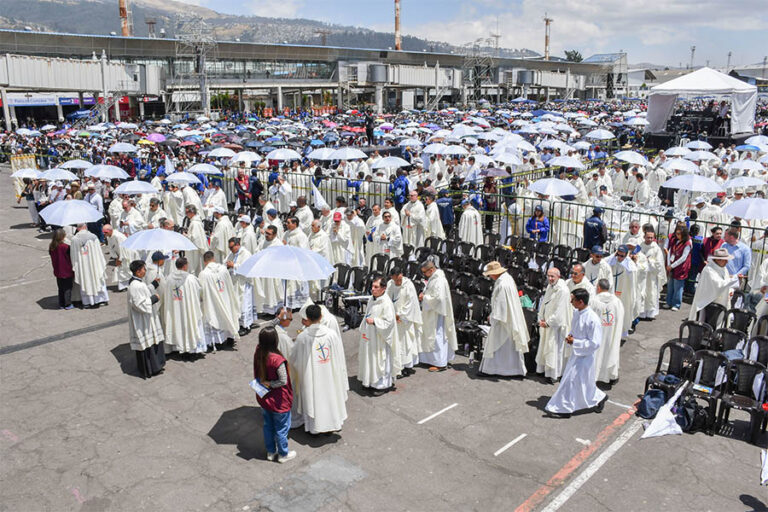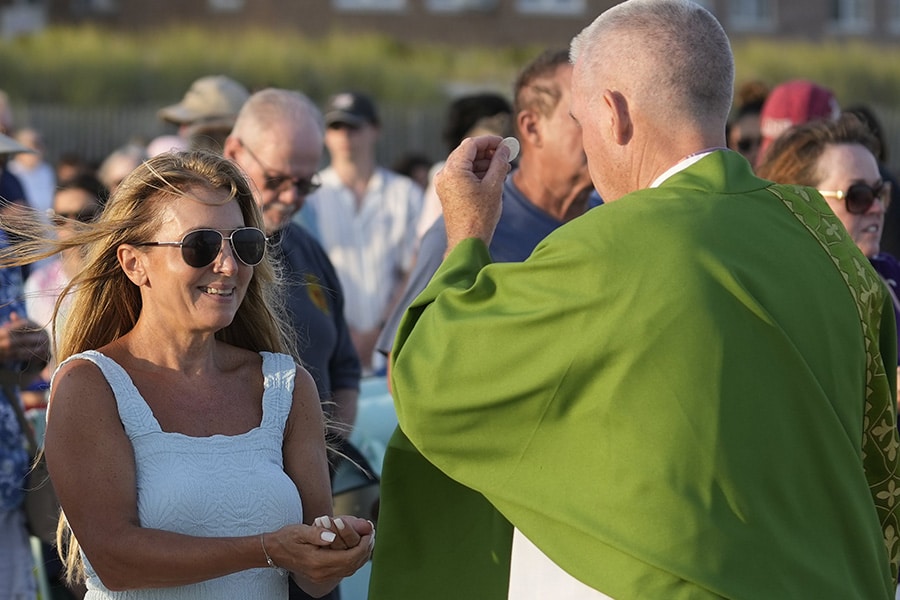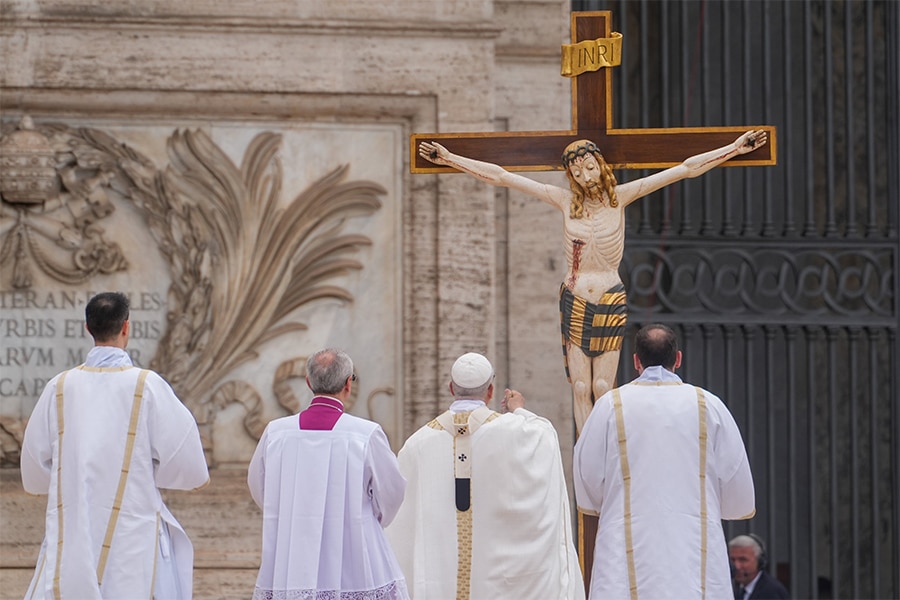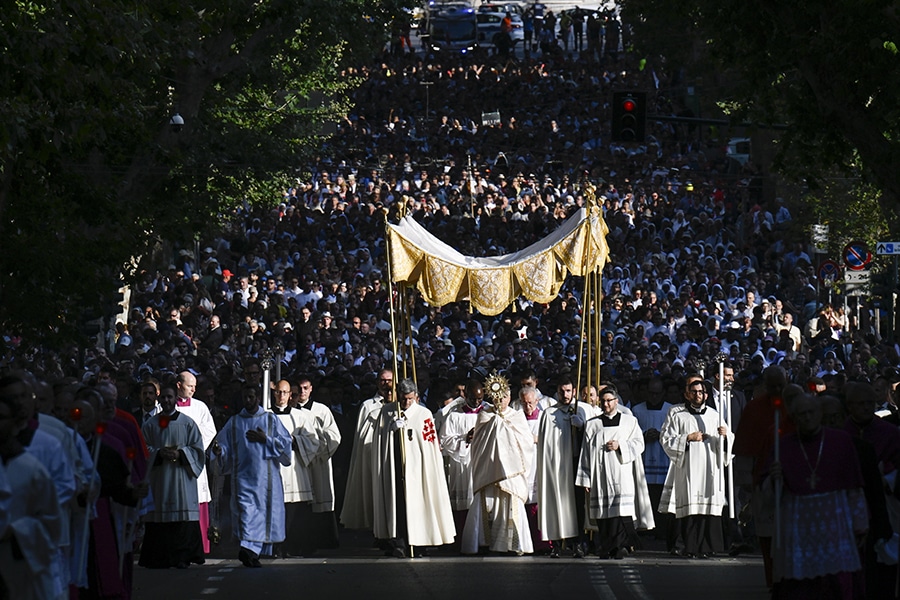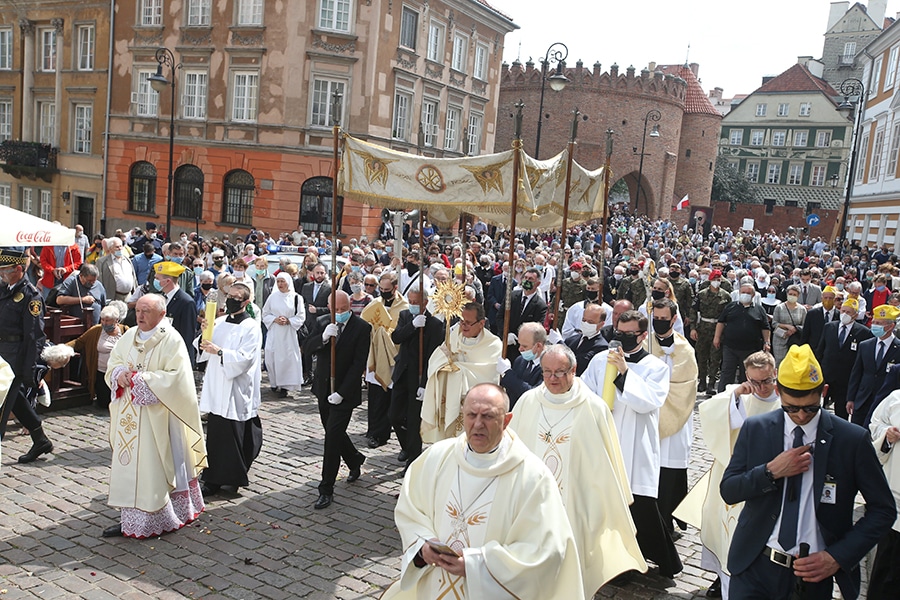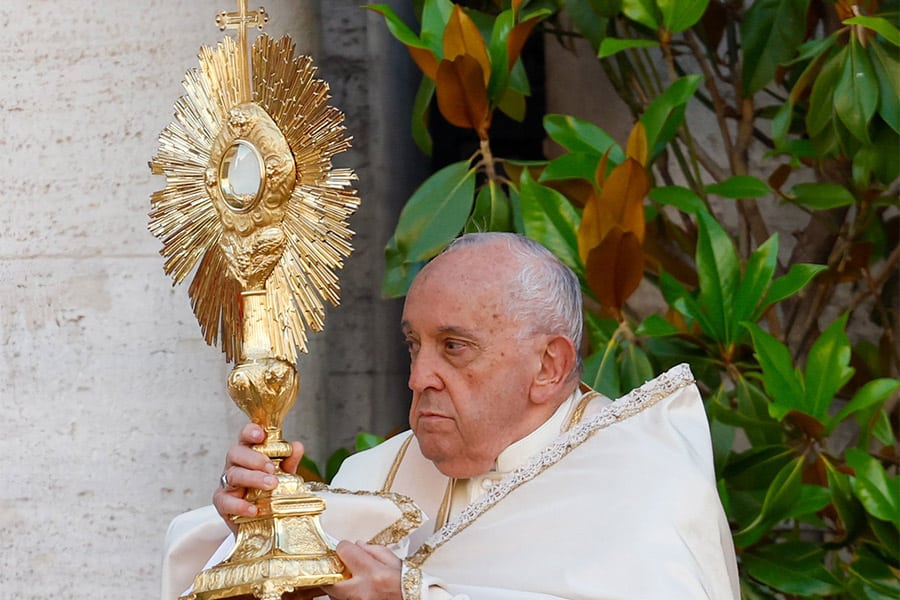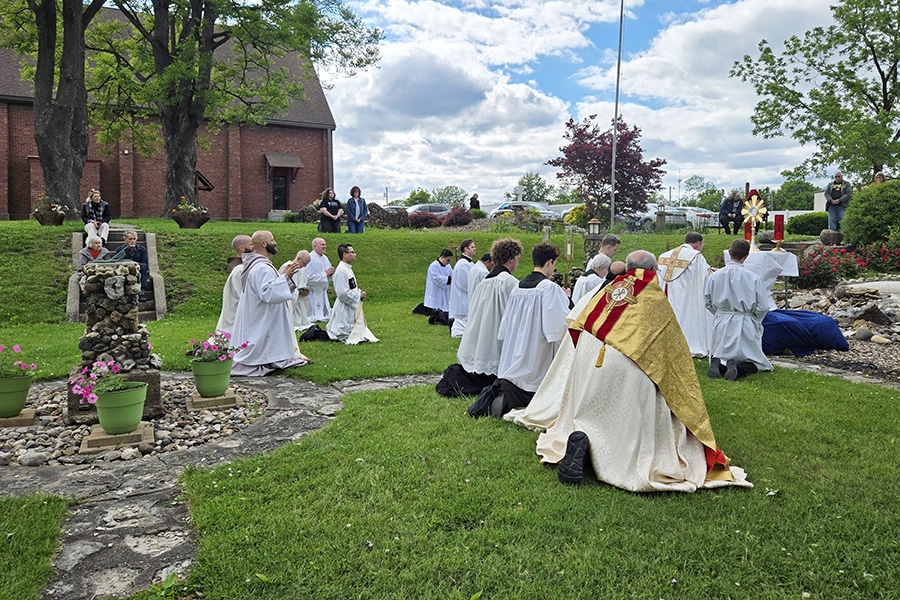The 53rd edition of the International Eucharistic Congress began Sept. 8 in Quito, Ecuador, with a strong call to build fraternity as a way of healing the wounds of a world full of fractures and violence.
The opening celebration included a message sent by Pope Francis, in which he emphasized that “we’re one and only in such unity we can serve the world and heal it.”
The encounter, which will conclude Sept. 15, was planned to promote — in line with the eucharistic invitation — human brotherhood, despite many divides, under the theme “Fraternity to Heal the World.”
Archbishop Alfredo Espinoza of Quito said in his homily during the opening Mass that the city became “a great eucharistic tent” and people from all over the world will think about a mystery that “challenges us to be real builders of fraternity so to heal the world’s wounds,” in a time “full of violence, death, and wars.”
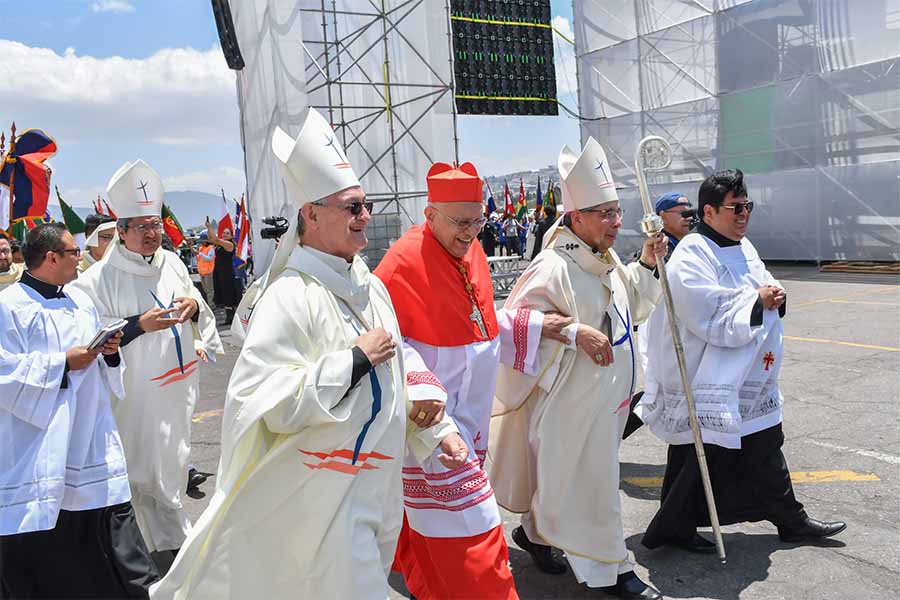
The opening Mass took place in Quito’s Bicentennial Park in the presence of thousands of people and dozens of bishops. To make the celebration even more joyful, 1,600 children received their first Communion during the Mass.
Cardinal Baltazar Porras Cardozo, retired archbishop of Caracas, Venezuela, was also present as pontifical legate for the congress.
For Bishop José Adalberto Jiménez of the Aguarico Vicariate, in the Ecuadorian Amazon, the combination of the perspective of adoration brought by the Eucharist with the call to a living exercise of faith was noticeable in Pope Francis’s message to the Congress, which the pontiff sent along as he’s crossing the globe for his farthest and longest apostolic trip to date to Indonesia, Papua New Guinea and East Timor.
“The pontiff invited us to be on the side of those who suffer — and do so with concrete gestures. That idea of a proactive fraternity greatly impacted me,” Bishop Jiménez emphasized, adding that the pope pointed out that simple actions should “lead us to a new world, a fairer and more humane one.”
“We have to touch the wounds of the social reality, tainted by social injustice caused by political lukewarmness and corruption,” as well as “deaths provoked by immigration” and poverty, “by criminal gangs, by the violation of the prisoners rights, by the pain of the families of alcoholics and drug addicts,” and by “the illegal mining that is destroying the Amazon,” Bishop Jiménez told OSV News, pointing to painful realities of the region.
“The congress was preceded by a theological symposium (Sept. 4-7) that gathered more than 600 theologians from all parts of the world. Their scholarly reflections will now be followed by a more pastoral and catechetical approach,” Father Juan Carlos Garzón, secretary-general of the congress, told OSV News.
With the theme “Wounded World,” the first full day of the congress allowed participants to think about some of the sufferings that currently exist in the world’s societies.
The problem sounds especially familiar in Ecuador’s capital. One of the speakers — Quito Mayor Pabel Muñoz — was to discuss the hardships in his city, which faced, along with several other regions, a wave of violence in January. Auxiliary Bishop Hryhoriy Komar of Sambir-Drohobych, Ukraine, was scheduled to talk about the consequences of the Russian invasion.
On the second full day, Sept. 10, the conference will deal with distinct forms of building brotherhood. Three Latin American bishops will tell the stories of key members of the region’s episcopate in the past, like Bishop Leonidas Proaño, an Ecuadorian-born prelate who devoted his life to help Indigenous groups and peasants.
The theme for day three will focus on the transfiguration of the world provoked by the Eucharist. One of the speakers will be Father José Antonio Maeso, a Spanish-born priest who has been working for several years with imprisoned people in Ecuador — and many times uses puppets in his activities with them. Bishop Andrew H. Cozzens of Crookston, Minn., organizer of the National Eucharistic Congress in the U.S. in 2024 will also be a guest for the day.
The final two days of discussions will focus on synodality and connections between the Eucharist and fraternity. One of the speakers will be Bishop Rafael Cob of Puyo, in the Ecuadorian Amazon, who will talk about his work at the Pan-Amazonian Ecclesial Network, known as REPAM in Spanish.
The congress will conclude with an Eucharistic procession on the streets of the old central district of Quito Sept. 14 and the closing Mass will be celebrated Sept. 15.
Father Garzón recalled that it’s been 20 years since the last International Eucharistic Congress in happened in a Latin American country. In 2004, it was organized in Guadalajara, Mexico.
“We’re receiving participants from 60 nations, but the event will certainly have a Latin American and an Ecuadorian face. I think our region’s church has a special contribution to give when it comes to promoting fraternity, in line with the pope’s message,” Father Garzón said.
It’s also a region that has been dealing with violence, divides and wounds, he added.
“We’re in an injured world. We’ll hear people talking about how they work in tough places, without seeing the others as enemies. We hope our minds will be open to receive the Holy Spirit’s blow,” he added.
Bishop Jiménez recalled that the eucharistic congress this year coincides with the 150th anniversary of the consecration of the South American country to the Sacred Heart of Jesus. In 1874, Archbishop José Ignacio Checa y Barba of Quito presided at the ceremony — side by side with President Gabriel García Moreno — that marked the first time a nation did so.
“That has a tremendous spiritual significance and will certainly throw light in the social dimension of the church’s work as well,” Bishop Jiménez told OSV News.
“May this congress open the way for us to the Christ of the Tabernacle and may he lead us to the suffering Christs of our sick brothers, marginalized and forgotten by society,” he concluded.
Read More Eucharist
Copyright © 2024 OSV News

